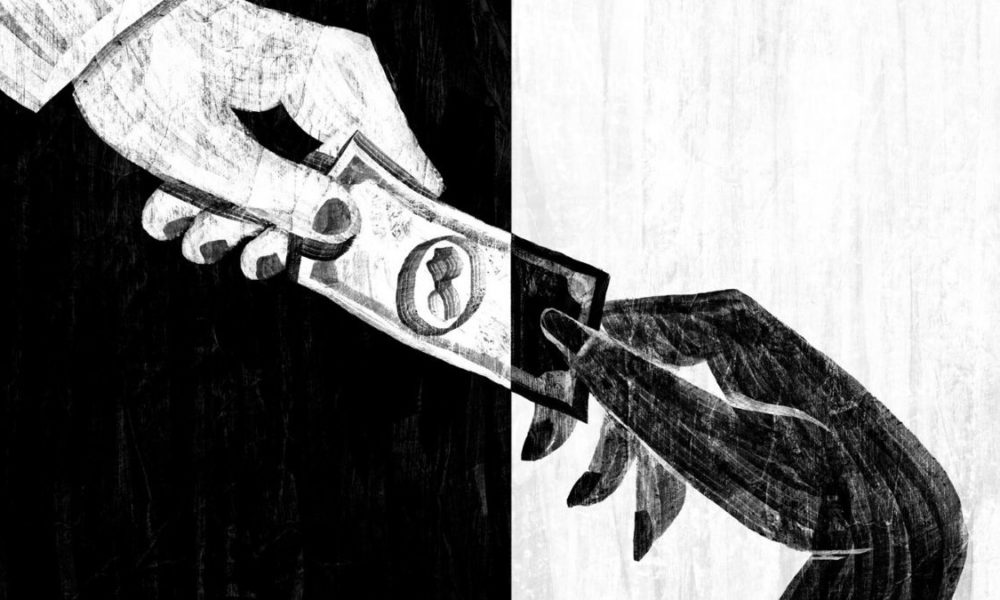The outbreak of Covid-19 and its commercial ramifications has compelled a closer study of employment relations and the manner in which they ought to be tackled during a crisis. Due to the outbreak, which many say is now at its peak, all businesses: large corporate conglomerates, mediumscale manufacturing units or small businesses, are facing the difficult challenge of continuing to pay workers despite a nationwide lockdown which has left them strapped for working capital.
The most affected by this commercial disruption are the daily wage earners, whose lives have undergone a severe upheaval. As a remedial measure, the Ministry of Labour and Employment, Government of India (“MLE”) on 20.03.2020 issued an advisory letter advising employers not to terminate employees or reduce wages during the lockdown.
This advisory, issued to all government departments, chief secretaries of states and employer associations, formed the basis of further directions issued by state governments. Thereafter, the Ministry of Home Affairs, Government of India (“MHA”) on 29.03.2020, invoking the Disaster Management Act, 2005 (the “2005 Act”) issued under Section 10(2)(l),directives to State Governments / Union Territories to take necessary action on various measures including “(iii) All the employers, be it in the Industry or in the shops and commercial establishments, shall make payment of wages of their workers, at their work places, on due date, without any deduction, for period their establishments are under closure due to the lockdown;”.
It is important to remember that any contravention of the directives under Section 10 of the 2005 Act is an offence punishable with imprisonment (Section 51). Further, to deal with the crisis, certain state governments also promulgated regulations under the Epidemic Diseases Act, 1897 (the “1897 Act”), which also provides that disobedience of regulations/orders under it is punishable under Section 188 of the Indian Penal Code, 1860. Some of these regulations (e.g. those issued by the Delhi Government) mandate that advisories issued by the Central Government shall be considered directions under the 1897 Act.
Thus, the advisory letters/Orders of the MLE and MHA could be considered binding. On 31.03.2020, the Supreme Court, in Alakh Alok Shrivastava v. Union of India, a matter pertaining to the condition of migrant workers in the lockdown, observed that disobedience of an advisory in the nature of an Order made by a public authority attracts Section 188, IPC.
Consequently, the interpretation of Order dated 29.03.2020 has assumed great importance and its validity has been challenged in a series of writ petitions (Ficus Pax Private Limited v. Union of India & Ors., and connected matters) in the Supreme Court, wherein the petitioners have expressed their inability to comply with it due to the acute financial hardship caused by the lockdown. Legal challenges to the governmental directives The writ petitions raise a number of crucial legal issues, the primary challenge being mounted on three Articles of the Constitution: Articles 14, 19 and 300A.
It is argued that the Order dated 29.03.2020 is manifestly arbitrary and ultra vires the mandate of Article 14, which enshrines the right to equality. The petitioners also challenge the blanket nature of the directives and contend that there is no reasonable classification between different types of employees or employers and the relative strength of their financial standing. Further, it is argued that the directives impose an unfair burden on employers regardless of their financial condition, violating Article 19(1)(g) which enshrines the fundamental right to practice any profession, or to carry on any occupation, trade or business.
To be saved, the directives would have to meet the test of reasonableness under Article 19(6) under which reasonable restrictions may be imposed on the fundamental right conferred by Article 19(1)(g). The petitioners also argue that the directions effectively take away their property, violating Article 300A which enshrines the Constitutional right to property.
A related argument advanced is whether if the State is exercising its powers of eminent domain, can it be said to have fulfilled the twin conditions of public interest and adequate compensation? While in the testing times of today, the element of public interest may have been met, no adequate compensation has been provided. In addition to the grounds of Constitutional challenge, it is argued that Parliament lacks the legislative competence to direct private establishments to pay full wages irrespective of work done.
Further, it is argued that the MHA directives, which constitute delegated legislation, are not within the authority of their parent statute i.e. the 2005 Act. Further, the 2005 Act was never intended to have financial repercussions, and as such was not a “money bill” under Article 110 of the Constitution and, as a corollary, directives under it cannot have mandatory financial obligations on private entities.
A pivotal argument raised is that the Industrial Disputes Act, 1947 (the “1947 Act”) is a complete code on the right to lay-off workmen and cannot be impinged upon by the 2005 Act. Sections 2(kkk), 25C and 25M of the 1947 Act, read conjointly, specifically envisage the right to lay-off workmen during a natural calamity and outline the employer’s obligations in such a situation, specifically providing that compensation at 50% of the total basic wages and dearness allowance is payable for all days for which the workmen are laid off.
To the contrary, it could be argued that the 2005 Act has been given overriding effect (Section 72) and hence employers cannot resort to the 1947 Act until the directives under the 2005 Act are withdrawn. The petitions also suggest possible ways to ease the financial burden on private entities. For instance, the Employees’ State Insurance Corporation funds could be utilised to make payments to workers on the ground that they are abstaining from work as “preventative treatment” against Covid-19. Further, unclaimed Provident Fund deposits could be utilised to support workers during this unprecedented crisis.
The order of the Supreme Court and possible outcomes On 27.04.2020, the Supreme Court directed the Government to file its response to the writ petitions which were directed to be listed after two weeks–pertinently no stay on the Order dated 29.03.2020 was passed on the first day. On 15.05.2020, further time of one week was granted to the Government to respond.
However, in two writ petitions (Indian Jute Mills Association v. Union of India and Hand Tools Manufacturers’ Association v. Union of India) it was directed that no coercive action be taken in the meanwhile. On an overall reading of the Orders passed in the various petitions, it seems clear that while there was no blanket stay on Order dated 29.03.2020, the court was directing that no coercive action be taken against employers on a case-to-case basis.
Thereafter, on 17.05.2020, the MHA issued a fresh set of guidelines to become operational from 18.05.2020, Paragraph 3 of which provides that “Save as otherwise provided in the guidelines annexed to this order, all order issued by the NEC [National Executive Committee] under Section 10(2)(l) of the Disaster Management (DM) Act, 2005 shall cease to have effect from 18.05.2020”. This is now being understood to mean that Order dated 29.03.2020 no longer has any force, unless specifically clarified to the contrary.
However, the authors believe that it may be prudent for employers to await the specific stand taken on the issue by the government in the petitions, which are to be listed next week. Assuming the Government clarifies that Order dated 29.03.2020 was always intended only to be advisory, the petitions would become infructuous.
However, if it is clarified that Order dated 29.03.2020 was intended to be mandatory but now stands repealed, the question of whether payment of wages was mandatory for the period of the lockdown until 17.05.2020 would still require an adjudication of issues raised in the petitions. It is also highly likely that a repeal of Order dated 29.03.2020 would invite a severe pushback from workmen and labour unions, both in the form of representations to governments and litigation. These interests would have to be balanced against those of various employers who may find themselves being driven towards bankruptcy.
While it is unclear today whether the issues raised by the petitions will now require a full-fledged adjudication, they have certainly thrown up important legal issues on the extent of legislative and executive powers in the midst of a crisis. In any event, whether advisory or mandatory, the authors believe that any governmental directives directing wages to be paid for periods of little or no work, as far as possible, ought to be part of a comprehensive scheme with a financial package that at least partially subsidises the additional financial burden on employers.
The authors are Advocates of Karanjawala & Co. practising in the Supreme Court of India and the Delhi High Court. Nandini Gore, Senior Partner and Tahira Karanjawala, Principal Associate, are also Advocateson-Record. Arjun Sharma is a Senior Associate.







